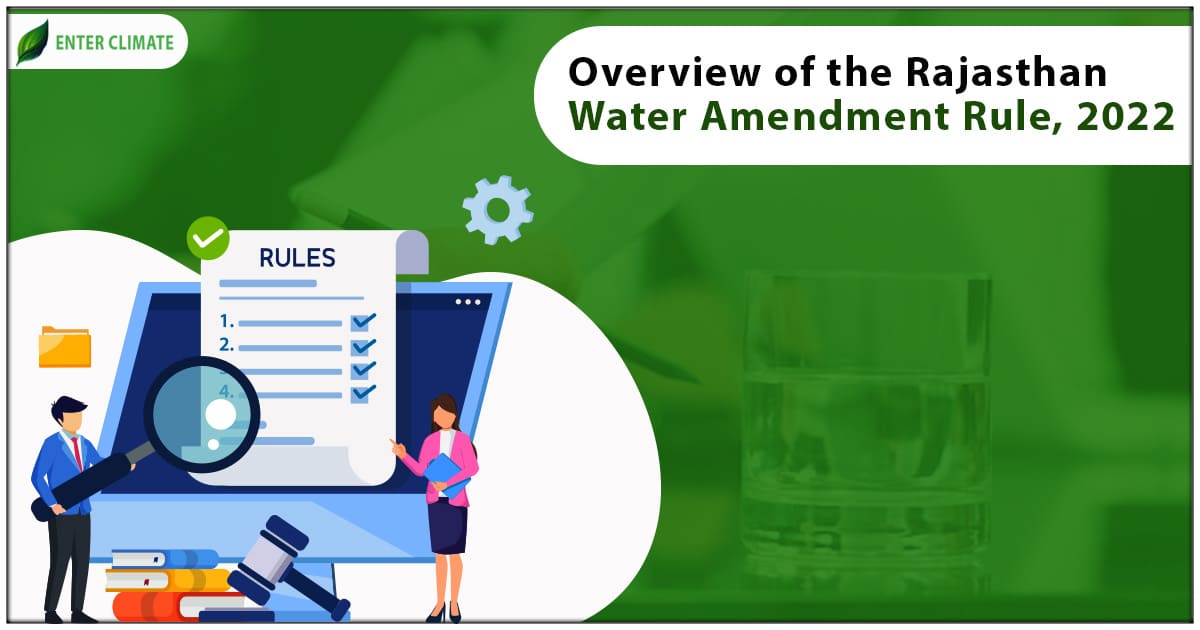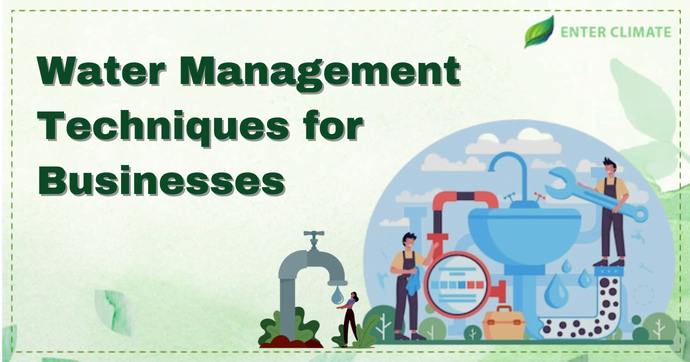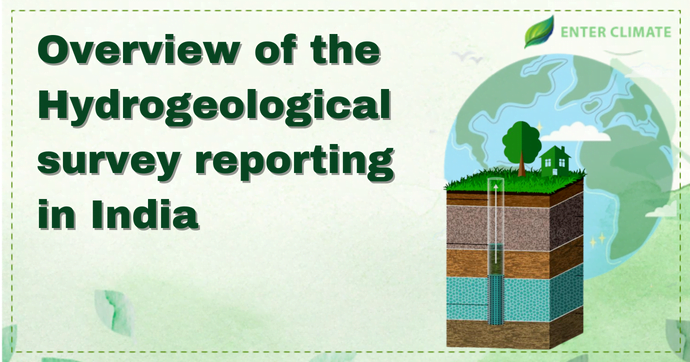Overview of the Rajasthan Water Amendment Rule, 2022
 01 Jun, 2023
01 Jun, 2023 
One of the main environment-related issues that Rajasthan is dealing with is water pollution and depleting water sources. Rajasthan’s largest source of this water pollution is untreated sewage. Other sources of contamination include unregulated small-scale industrial facilities and runoff from the agricultural sector. This issue is being addressed with the Rajasthan Water (Prevention and Control of Pollution) Rules, 1975, enacted one year after the Water (Prevention and Control of Pollution) Act, 1974, came into existence. The same year also saw the setup of the Rajasthan State Pollution Control Board (RSPCB), which works in consonance with the different departments in the state. RSPCB implements rules and their amendments from time to time to protect the environment in the state of Rajasthan. The Department of Environment and Climate Change, established in 1983, is a vital agency working towards a clean environment in the state. The department, on 16 November 2022, notified the Rajasthan Water Amendment Rule, 2022, to further amend the Rajasthan Water (Prevention and Control of Pollution) Rules, 1975.
Highlights of the Rajasthan Water Amendment Rule, 2022
The Rajasthan Water (Prevention and Control of Pollution) Rules, 1975, consists of 39 sections divided into 12 chapters, 15 forms and 4 parts. Through this amendment, part IV of the Schedule IV of the 1975 rules has been expanded. Under the Rajasthan Water Amendment Rule, 2022, Part-IV, after serial number 47 denotes the type of White Category units, 7 units (businesses) have been added. The Rajasthan Water Amendment Rule, 2022, came into force on December 2022. These units that were added include
- Automobile Fuel Outlet (only dispensing)
- Bamboo and cane Product manufacturing from cane and Bamboo of Shopping bags, ornament boxes (only dry operation)
- Book Binding
- Cottage Industry for manufacturing of Pickle, papad, badi, mangodi etc.
- Manufacturing of handicrafts/ decorative items only dry process with no source of air emission
- Used cooking oil (UCO) collection centre
- Homestay/ paying guest house registered by the Department of Tourism, Government of Rajasthan.
Salient Features of the Rajasthan Water (Prevention and Control of Pollution) Rules, 1975
The Rajasthan Water Rules of 1975 include important clauses such as what constitutes water pollution, pollution prevention techniques etc. The regulations provide for a range of pollution prevention strategies, such as:
- The construction of sewage treatment facilities and industrial effluent treatment facilities
- The installation of pollution control equipment in industrial settings
- The management of pesticide and fertiliser use
- The avoidance of garbage discharge in water bodies or on land
The laws have improved the water quality in rivers, lakes, and bodies of water and assisted in reducing water pollution in the state. The Rajasthan Water Amendment Rule, 2022 were created by the government in accordance with the Central regulations. The present form of the Rajasthan Water (Prevention and Control of Pollution) Rules, 1975, aims to curb water pollution in the state and cover a wide range of industrial practices that can pollute water, such as:
- Discharging sewage and industrial effluents into water bodies
- Disposing of garbage on land or in water bodies
- Using pesticides and fertilisers
- Building dams and other water bodies.
The Rajasthan Water (Prevention and Control of Pollution) Rules, 1975, are crucial for safeguarding the state of Rajasthan’s water resources. Butt at the same time, there are some micro and small-level businesses that face stringent regulation at the time of business setup. Thereby the list of white categories has been expanded to encompass traditional and handicraft-related businesses and exempt them from the consent mechanism.
Legalities applicable to Businesses in Rajasthan
For Facility as listed at serial number 1 of Part-III of Schedule, under the Rajasthan Water Amendment Rule, 2022, the Pollution Board will issue one-time Consent to Operate. However, the remaining industrial units that started operating after receiving CTEs from the Rajasthan Pollution Control Board are required to apply for “Consent to Operate” periodically from the RSPCB in accordance with the Air and Water Act. No industry can operate without a CTO in the state.
The Rajasthan Pollution Control Board’s Consent to Establish (CTE) is required before starting a new unit, as well as before extending or modernising an existing unit, for any industry that discharges trade effluent into a body of water, stream, well, sewer, or on land. CTE was an important tool for enforcing the ECs’ requirements for reducing water and air pollution. The list of Acts and regulations that are applicable to a business in Rajasthan include
- Rajasthan Water Amendment Rule, 2022.
- Water (Prevention Control of Pollution) Cess Act, 1977.
- Municipal Solid Waste (Management Handling) Rules, 2000.
- Noise (Pollution Control Regulation) Rules, 2000.
- Air (Prevention Control of Pollution) Act, 1981
- Environmental Impact Assessment Notification 2006.
- Hazardous Waste (Management, Handling and Transboundary Movement) Rules, 2022.
- Plastic Waste (Management & Handling) Rules, 2011.
- Manufacture, Storage & Import of Hazardous Chemical Rules, 1989.
- Manufacture, Use, Import, Export & Storage of Hazardous Micro-organisms/Genetically Engineered Organisms or Cells Rules, 1989.
- Public (Liability) Insurance Act, 1991.
- Rajasthan Water (Prevention & Control of Pollution) Cess Rules[1], 1978.
- Environmental Impact Assessment (Aravalli) Notification 1992.
- Chemical Accidents Rules, 1996.
- Bio-Medical Waste (Management & Handling) Rules, 1998.
- Fly Ash Act, 1999.
- Ozone Depleting Substances (Regulation) Rules, 2000.
- Battery (Management & Handling) Rules, 2022.
- Rajasthan Air (Prevention & Control of Pollution) Rules, 1983.
In order to ascertain whether environmental regulations and standards are being upheld in relation to the raw materials utilised, emissions, effluents, and waste discharges, the Rajasthan Pollution Control Board monitors entities that are awarded the CTO. In the case of red category industries’, the CTO validity was increased by RSPCB from three to five years. But the entity is required to apply to the Board at least 120 days before the CTO’s expiration.
Documents required for CTE and CTO
According to the applicable regulations, businesses that discharge effluents into water bodies must first seek the RSPCB’s approval. The Board only grants consent after being satisfied that the industry or establishment is making sufficient efforts to prevent water contamination. To obtain the CTE and CTO certificates for Red, orange and green categories, one must ensure that the following documents are submitted to RSPCB.
Documents required for CTE
- CTE Application on OCMMS Portal
- Site or layout plan with a roadmap
- Signed undertaking.
- Consent fee
- Detailed project report
- Details on the unit’s manufacturing processes, as well as the sources of its solid waste, air emissions, effluent discharge, and possibly hazardous waste production.
- Industry registration documents
- Details of finished products
- Land documents such as rent/lease agreements.
- Water balance, source of water and its required quantity
Documents required for CTO
- Duly filled Application on RSPCB’s OCMMS portal
- Copy of Consent to Establish
- Balanced sheet certified by a CA.
- Proof and information on solid waste/hazardous waste management facilities, air and water pollution control systems, and their location on the land, capacity, and discharge exit locations.
- Copy of any permission required from the RSPCB, such as environmental clearance.
- Site plan
- Lab report of the trade emissions and effluents
- Any other document specified and mandated by RSPCB
Conclusion
In India, increasing water pollution is a major problem, so it’s crucial to consider reducing and preventing it from worsening. Although Rajasthan Water (Prevention and Control of Pollution) Rules 1975 undoubtedly offers a number of solutions and statutory measures that will look to prevent and control water pollution, there are many environments related compliance that a business must conform with as per the nature of their business. Seeking assistance from environmental and licencing experts can ease the business setup journey.
Read our Article: Water Management Techniques For Businesses













